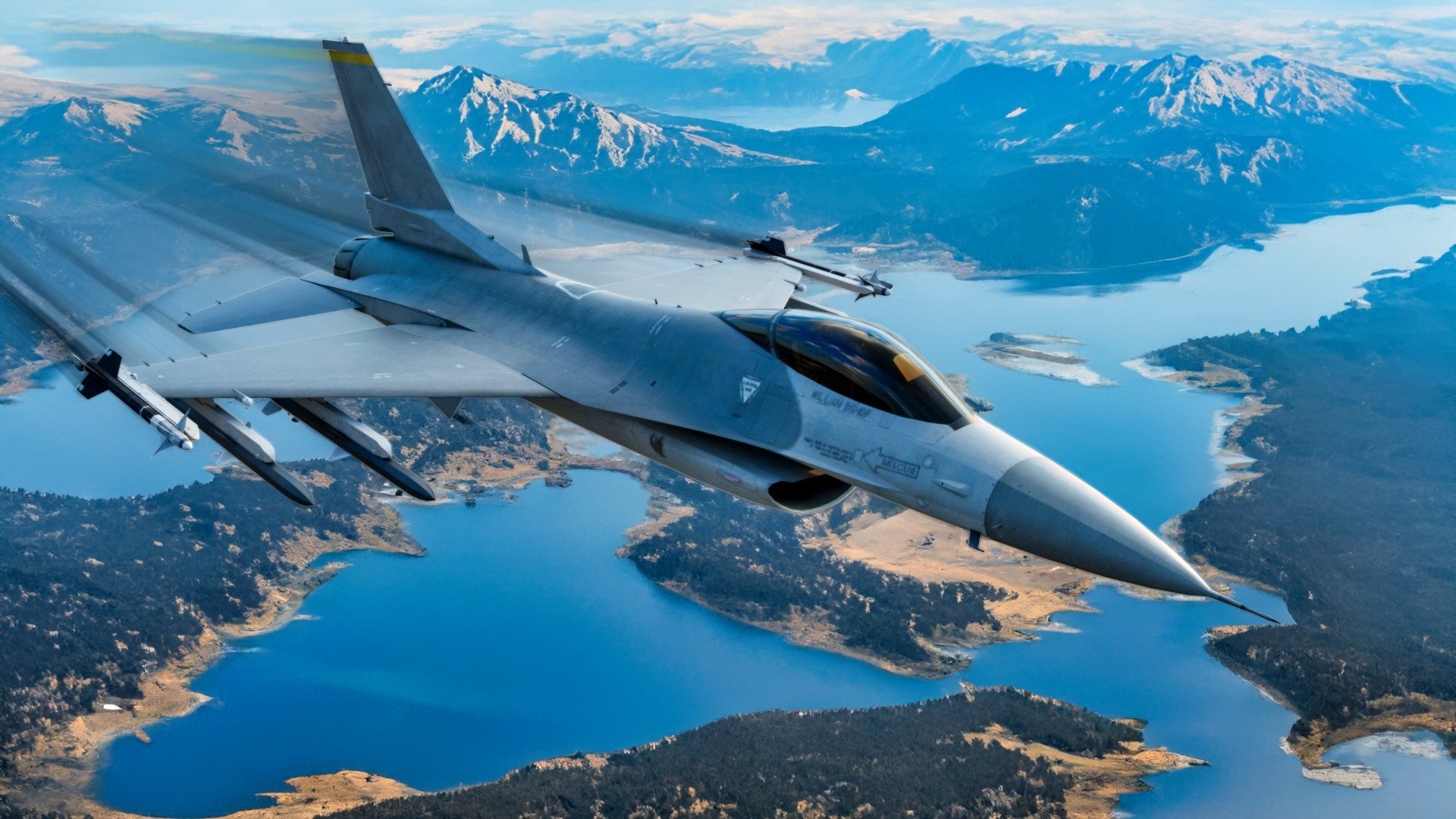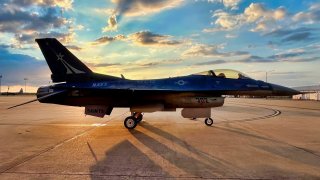The U.S. Navy Just Received a Fleet of F-16 Fighters from the U.S. Air Force
The U.S. Navy has acquired additional F-16 Fighting Falcons from the U.S. Air Force to replace retiring legacy F/A-18 Hornets used for adversary combat training.
Summary and What You Need to Know: The U.S. Navy has acquired additional F-16 Fighting Falcons from the U.S. Air Force to replace retiring legacy F/A-18 Hornets used for adversary combat training.
-The Navy’s Tactical Support Wing initially explored purchasing used F-16s from Greece but encountered complications.
-Instead, it capitalized on the Air Force’s retirement of over 30 F-16s with significant service life remaining.
-These aircraft are now being used in the Navy Reserve’s new F-16 squadron, VFC-13, for dissimilar air combat training (DACT).
-This move bolsters the Navy’s capabilities as Greece considers selling its aging F-16s, possibly to Ukraine.
How The U.S. Navy Acquired Air Force F-16s After Looking to Greece for Used Fighters
The U.S. Navy and Air Force see eye-to-eye on certain aircraft. Those of course include the F-35 Lightning II, with the Air Force operating the F-35A conventional takeoff and landing variant, while the Navy flies the carrier-based F-35C model.
But the two services operate different fighter aircraft. The Air Force opts for the F-15 Eagle and F-15 Strike Eagle, and is looking to the F-15EX Eagle II – and it also flies the F-16 Fighting Falcon. The Navy chose the F/A-18 Hornet and the upgraded F/A-18 Super Hornet as its carrier-based strike fighters.
The Navy also has fourteen F-16s in its fleet, according to Naval Air Systems Command – 10 single-seat F-16A models and four twin-seat F-16Bs. The Fighting Falcons are employed in a training and adversary combat tactics role, simulating the role of an enemy fighter, to help Navy aviators in dissimilar air combat training, or DACT.
"The aircraft serves in an aggressor-training role with simulation capability of current threat aircraft in fighter combat mode," NASC explains.
New Navy F-16 Squadron
Last week, the Tactical Support Wing (TSW) announced that efforts to acquire additional F-16s for use in adversary squadrons have been ongoing since 2009. The process was complicated by the early retirement of legacy Hornets that served in a similar role.
However, the sea service was able to acquire more than two dozen F-16s from the Air Force, and those aircraft will now serve with the Navy Reserve's first F-16 squadron – Fighter Squadron Composite (VFC)-13.
"With only 12 Super Hornets available to replace approximately 48 Legacy Hornets, we had to explore alternatives like the F-16," said Executive Officer of VFC-13 Comm. Traver Fordham. "New-build F-16s were too costly and time consuming, so we looked at second-hand options."
Second-Hand F-16 Falcons
TSW also explained that the Navy had explored reacquiring a number of Fighting Falcons from NATO ally Greece, as the Hellenic Air Force continues a modernization effort. According to a report from The War Zone, the Hellenic Air Force operated "34 single-seat F-16C and six two-seat F-16D Block 30 jets that were procured under the Peace Xenia I Foreign Military Sales program and delivered between 1988 and 1990."

How much service life is left in those aircraft is not known, but it appears to be a moot point. TSW didn't specify the details, but it was unable to move forward with the deal.
"After encountering issues with buying from Greece, we capitalized on the Air Force's plan to retire over 30 F-16s with 2,000 to 3,000 flight hours remaining," said Fordham. "This led to a successful transfer agreement, and the first of these 26 F-16s, 12 of which went to VFC-13, was delivered to NAS Fallon [Nevada] back in April 2022, with plans to receive a total of 30."
Greek Fire Sale
Athens has been mulling what to do with its aging F-16s, and there has been speculation the fighters could be sold to Ukraine.
Kyiv is already on track to receive around 90 Fighting Falcons from Belgium, Denmark, the Netherlands, and Norway. The first of those aircraft arrived earlier this summer, and one was already lost in a crash last month. An additional 40 and perhaps even as many as 80 fighters could be significant for Ukraine.
Author Experience and Expertise: Peter Suciu
Peter Suciu is a Michigan-based writer. He has contributed to more than four dozen magazines, newspapers, and websites with over 3,200 published pieces over a twenty-year career in journalism. He regularly writes about military hardware, firearms history, cybersecurity, politics, and international affairs. Peter is also a Contributing Writer for Forbes and Clearance Jobs. You can follow him on Twitter: @PeterSuciu. You can email the author: [email protected].
Image Credit: Creative Commons and/or Shutterstock.


